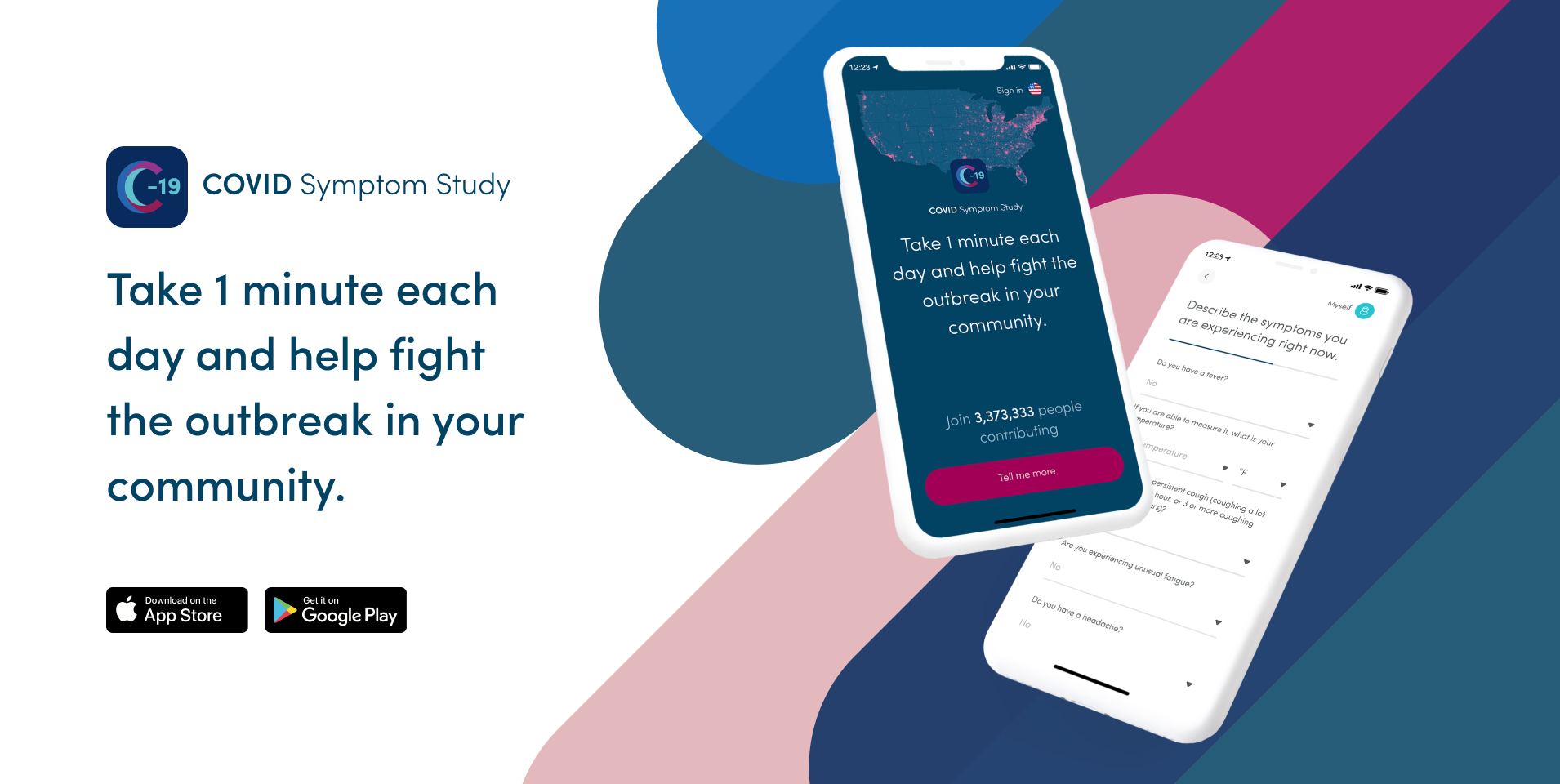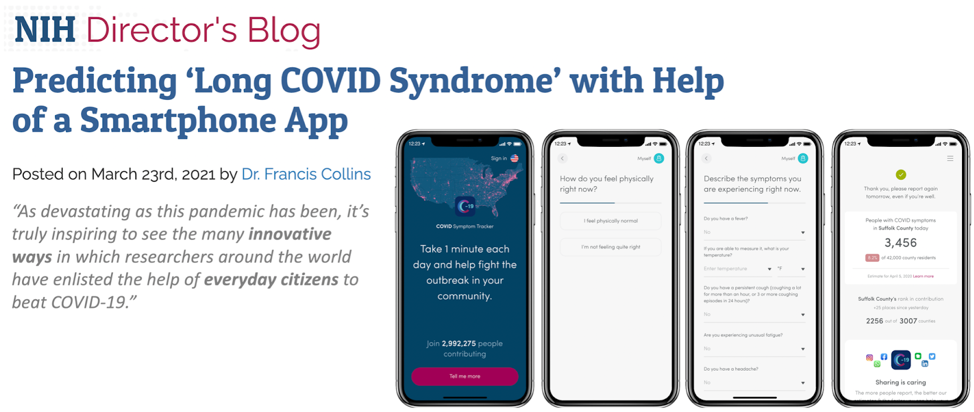 Back to Case Studies
Back to Case Studies
Locations
Boston, MA
London, UK
The COVID Symptom Study App was created by doctors and scientists at Massachusetts General Hospital, the Harvard T.H. Chan School of Public Health, King’s College London, and Stanford University School of Medicine, co-developed with ZOE – a health science company. COVID-19 is still a relatively new disease, which makes new data collection especially critical in responding to the ongoing global pandemic. The data collected by the app helps scientists better understand COVID-19 symptoms and spread. It also helps identify COVID-19 risk groups and high-risk areas across the United States, the United Kingdom, and Sweden. As the pandemic evolves, the research scope of the COVID Symptom Study App has expanded to include how vaccines will influence the course of the pandemic and the impact of COVID-19 on diet and mental health.
 The COVID Symptom Study app is the largest community monitoring of COVID in the world.
The COVID Symptom Study app is the largest community monitoring of COVID in the world.
Public health officials have long struggled to bridge the lag between the spread of disease and the data needed in real-time to combat the disease. During the COVID-19 pandemic, in the absence of widespread testing, health officials worldwide struggled to track the spread of the coronavirus pandemic in real-time and assess the impact of mitigation efforts, such as lockdown measures and vaccines. Researchers also lacked data on risk factors, symptoms, and COVID-19’s effects on other health conditions. This data is critical to combating the disease.
 The Covid Symptom Study was recently featured in the NIH Director’s Blog for its impact on our understanding of COVID.
The Covid Symptom Study was recently featured in the NIH Director’s Blog for its impact on our understanding of COVID.
The Covid Symptom Study App is a survey that quickly collects critical COVID-related data and extracts relevant insights. Through the app, the mobile survey has engaged over 4.6 million users to date, including many communities disproportionately impacted by COVID-19. The data that the mobile app collects is highly adaptable and changes depending on the needs of public health researchers.
The app has helped identify critical insights about COVID-19. These insights include the patterns and trends of COVID-19 spread and symptoms including loss of smell and taste. The research revealed that healthcare workers of color are five times more likely to contract COVID-19 than their non-Hispanic white counterparts. It has also helped explain the influence of social determinants of health on the disproportionate impact of COVID-19 on communities of color. Additionally, the study recently uncovered risk factors for long COVID, in which some people have symptoms that persist for a long time after they begin to test negative.
The Covid Symptom Study’s findings have been presented in well-regarded medical journals and highly cited in peer review literature. The Director of the National Institutes of Health recently highlighted the impact of the Study in his Director’s blog. The study has been an effective way of tracking the COVID-19 infection rate; researchers have used the study data in algorithms to predict COVID-19 infections with nearly 80% accuracy among the 2.5 million people who used the app between March 21, 2020 and April 21, 2020. Using the app to detect the spread of the disease is particularly useful in the absence of widespread testing.
The next phase of research is focused on the COVID-19 vaccine response. This research will inform the public health community’s understanding of vaccination rates, vaccine hesitancy, and nationwide uptake by demographics like race, socioeconomic class, and geographic location. Currently, nationwide vaccine uptake information is very fragmented because of challenges in systematic data collection.
Future research will also focus on the risk of developing COVID-19 infection or symptoms post-vaccination, the role of diet and lifestyle in COVID-19 risk, and the impact of COVID-19 on mental health and personal/socioeconomic disruption.